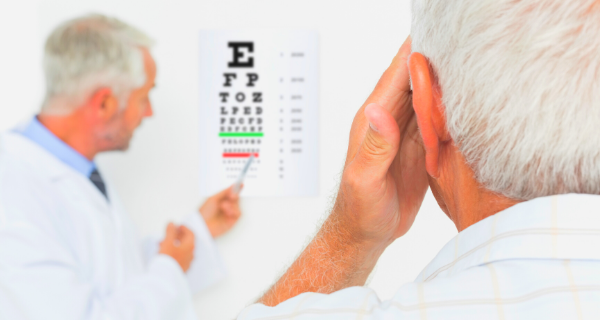From trouble reading text up close to struggling with dry eyes – there are some changes to our vision that are a normal and expected part of the aging process. Also common are more serious eye-related conditions, including cataracts, glaucoma, and age-related macular degeneration. Left untreated, these conditions can eventually lead to vision loss or even blindness. Although age and family history are risk factors for these and other eye-related problems, there are plenty of ways you can care for your eyes as you age.
Protecting Your Eyesight
Keeping your eyes healthy during your golden years isn’t complicated, but some lifestyle changes may be required. To help protect your vision, follow these simple strategies:
Have Your Eyes Checked Regularly
Since many eye diseases don’t show symptoms until your vision has been impacted, regular eye exams are critical. Early detection increases the chances for successful treatment – and more importantly, preserving your vision.
The American Academy of Ophthalmology recommends that all adults have a baseline eye exam at the age of 40. Seniors 65 years and older should have an eye exam once per year, or every other year.
During the exam, your doctor will check for the following conditions, including:
- Age-related macular degeneration
- Diabetic retinopathy
- Glaucoma
- Cataracts
If You Smoke – Quit
In addition to raising your risk for chronic health conditions like heart disease and cancer, smoking can also affect your eyesight. If you have an existing eye condition – like dry eye or Grave’s disease – smoking may make your symptoms worse. Smoking can also increase your risk of developing certain eye diseases, including:
- Cataracts occur when your eye’s natural lens becomes cloudy, and require surgery to correct.
- Age-related macular degeneration causes central vision loss – the result of damage to a part of your retina called the macula. While there are treatments that can slow vision loss, there is no cure for AMD.
- Diabetic retinopathy is one of the leading causes of blindness, and happens when the blood vessels in the retina are damaged.
For tips on how to quit smoking, visit the Centers for Disease Control and Prevention’s website.
Wear Sunglasses
If soaking up the sun is a favorite past time, you probably know the importance of using sunscreen regularly. Just as important – although less well known – is the need to wear sunglasses while enjoying the outdoors. While sunscreen limits the damage to your skin from the sun’s ultraviolet rays, sunglasses can protect your eyes.
Exposure to ultraviolet light can increase your chances of developing age-related macular degeneration, as well as cataracts. For the best protection, search for wrap-around sunglasses that block 99 to 100 percent of UV-A and UV-B rays.
Eat a Healthy Diet
Eating a well-balanced diet offers numerous benefits – including protecting our eyesight. By including certain foods in your diet, you may be able to lower your risk of developing several eye diseases. The key nutrients found in fresh fruits and vegetables, as well as lean proteins may protect against cataracts, age-related macular degeneration, glaucoma, and dry eyes. Healthline recommends adding the following to your plate on a regular basis:
- Fish, especially those rich in omega-3 fatty acids, help to keep your retina healthy, and may prevent dry eyes.
- Eggs are a good source of nutrients that support overall eye health, including vitamin A, lutein, and zinc.
- Almonds are packed with vitamin E, which may prevent age-related macular degeneration and cataracts.
- Carrots are high in vitamin A and beta carotene – both beneficial for good eye health.
- Dark, leafy green vegetables like kale and spinach are excellent sources of lutein and zinc, which may guard against cataracts and age-related macular degeneration.
More Lifestyle Tips
For additional lifestyle tips and resources, visit The Bristal’s blog.



